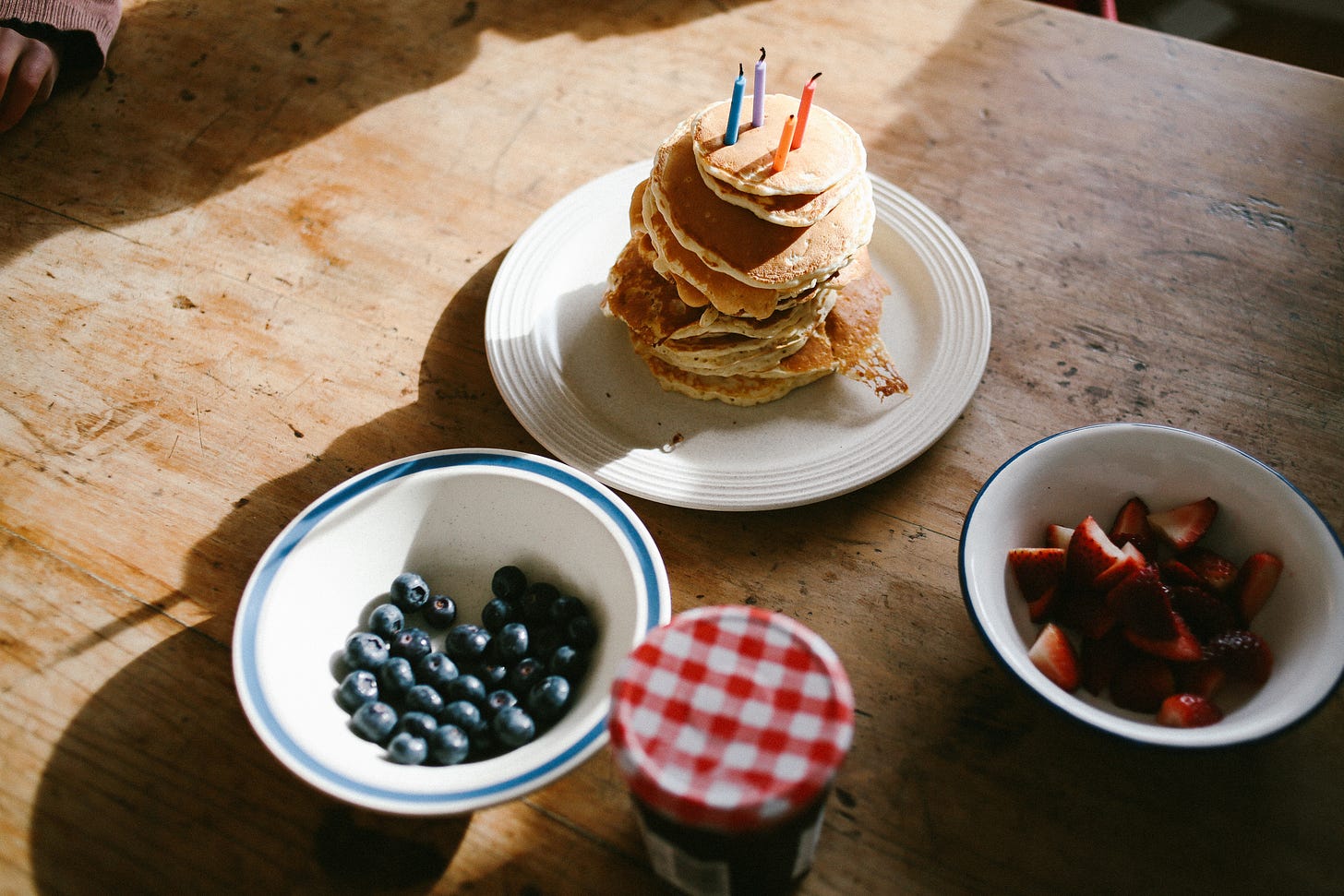Apologies for not sending a letter last week; book publication week is always quite overwhelming and this one has been particularly so. I just needed to step back for a bit and mend myself.
In other news, I wrote about my cosleeping experience over at
. I’m also giving away a copy of my first book - Practising Simplicity - and my third - The Complete Guide to Postpartum - to one paying subscriber. If you’re interested, leave a comment on this post and I’ll pick a name and send you an email next week.And, a few older posts for you to peruse if you’re new here:
scroll down for an audio recording of this letter
Dear new mum,
A mother is most likely to be diagnosed with perinatal depression and anxiety when her baby is celebrating their first birthday. This makes complete sense to me because I remember the nine to 12-month mark being particularly challenging with all four of my babies. It’s when crawling and the mess of eating solids compounds the sleep deprivation and work — the very physical, arduous work — of caring for a baby day and night. It’s also when most support networks, if they existed in the first place, have slipped away and normal life sweeps you up in a pace that feels unsustainable.
That’s because it actually is unsustainable. But we persist because we need to, and we learn the inevitable juggle which more often than not involves financial pressure, returning to paid work and childcare. And we fit all these things into our lives and wonder, in the rare quiet moments that we steal, who we’ve become and whether we’ll always feel this overwhelmed.
When I was researching The Complete Guide to Postpartum one of the best quotes I came across was from literary and culture critic Jacqueline Rose who writes:
“What are we doing to mothers — when we expect them to carry the burden of everything that is hardest to contemplate about our society and ourselves…Why on earth should it fall to them to paint things bright and innocent and safe.” She goes on to say: “Unless we recognise what we are asking mothers to perform in the world — and for the world — we will continue to tear both the world and mothers to pieces.”
And I think this is what I always felt at that nine-month mark, completely unsure of who I was and how I was ever going to stay on top of the stained onesies, the food thrown from the highchair and be present with my baby in meaningful ways. This desire to parent to the standard we see as ‘best’ is ingrained in us before we even conceive. These markers of motherhood success have been pedalled for decades and I fear they’re more pertinent than ever; yes we’re being more honest about how motherhood feels, but I don’t think we’ve quite reached the same level of transparency with how motherhood looks.
It looks like:






